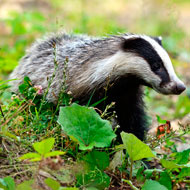
Guardian claims 2015 badger culls will take place earlier when cubs are numerous
A story in the Guardian this week has claimed next year's badger cull will take place in early summer when cubs are more numerous, in order to make it easier to reach targets.
According to the Guardian, an unnamed source has revealed culling in Gloucestershire and Somerset will begin in June or July 2015. Culling under license is legally allowed from June 1, although the culls in 2013 and 2014 began in August and September respectively.
Defra says the cull period is based on advice from wildlife experts to reduce the risk of removing badgers with cubs. Two licensed companies decide on the timing for the start of the culls.
Responding to the Guardian's claims, a Defra spokesperson said: "England has the highest levels of bovine TB in Europe which is why we are pursuing a comprehensive strategy to make England free of the disease, including cattle measures, vaccinations and culling badgers where TB is rife.
"The licences in Somerset and Gloucestershire allow culling to commence any time from 1 June, which was based on the advice of wildlife experts. The timing of the start of culls is a decision for the two licensed companies."
Also this week, the BVA warned Defra not to take its support for the culls for granted. Last year's pilots were found to be inhumane and ineffective by an independent expert panel. The BVA said it is "disappointed" that this year's culls were not independently monitored despite repeated calls to implement this.



 The Animal and Plant Health Agency (APHA) has updated its online reporting service for dead wild birds.
The Animal and Plant Health Agency (APHA) has updated its online reporting service for dead wild birds.